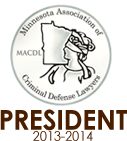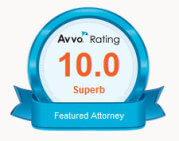Drugs And DWI:
Sometimes, drugs and DWI go hand-in-hand. Alcohol is not the only substance that a person has to have in their system to be charged with DWI. Pursuant to Minnesota Statute §169A.20, a person can also be charged with DWI if drugs are in their blood or urine. In addition, an individual can be charged with DWI due to being intoxicated with alcohol and then have a second charged placed upon them because they are in possession of drugs. There are a number of combinations that exist that can result in a unique set of charges against you. These charges can be successfully challenged with the help of your Minnesota DWI lawyer.
DWI With A Controlled Substance
Controlled substances are broken down into schedules at the federal level as a part of the Controlled Substances Act. In Minnesota, controlled substances are broken down into five schedules. If an individual has any Schedule 1, Schedule II, or a metabolite of any of these substances within their system they can be charged with a DWI. This does not include marijuana or tetrahydrocannabinols. Examples of schedule I and II drugs are opium, cocaine, and ecstasy.
If the controlled substance is a prescription drug and the driver has a valid prescription for the drug then the state would be required to prove that the quantity of the drug within the body caused actual impairment and was not medically prescribed.
Under The Influence Of Hazardous Substances
Being under the influence of a hazardous substance also results in a DWI charge. The reason is because drugs have an impact on the brain and the nervous system, seriously compromising a person’s ability to operate a motor vehicle. That is why when a patrol officer pulls a driver over due to suspicion of driving under the influence, that person is subject to blood and urine tests to detect the illegal substances. Refusal to take these tests also results in a DWI refusal charge.
Criminal And Civil Penalties
DWI resulting from consumption of a controlled substance carries the same penalties as someone who is convicted of DWI due to the consumption of alcohol. First time offenders are charged with a fourth degree DWI. This is a misdemeanor that can result in a $1,000 fine and 90 days in jail. A third-degree DWI, a gross misdemeanor, carries a $3,000 fine and one year in jail. A second-degree DWI is a gross misdemeanor with a first-degree being a felony that can result in $14,000 in fines and up to 7 years in prison. Each of these charges are aggravated by the number of offenses that have occurred within the past 10 years (four offenses lead to a felony first-degree DWI).
The civil penalties include the suspension or revocation of your license. Even though there is no BAC associated with this type of DWI, the penalties are the same. For instance, a first time offender will lose their license for 90 days. A first time offender under the age of 21 will lose their license for 180 days. A second time offender will lose their license for a year, while a five time offender will lose their license for six years. No matter what, the penalties are harsh, but they can be challenged by your Minnesota DWI attorney so that your case can see a conclusion that works more in your favor.
Contact Minneapolis DUI Attorney F. T. Sessoms:
If you have been charged with DWI of a controlled substance, DWI of a controlled substance and drug possession, or DWI due to alcohol consumption and drug possession, do not hesitate to seek legal help as soon as possible. For help call Minneapolis DUI Lawyer F.T. Sessoms today at 612-344-1505.






